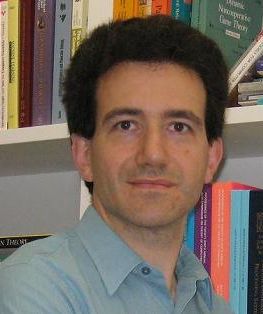|
ABSTRACT: |
The PPAD-completeness of Nash equilibrium computation is taken as
evidence that the problem is computationally hard in the worst case.
This evidence is necessarily rather weak, in the sense that PPAD is only
known to lie "between P and NP", and there is not a strong prospect of
showing it to be as hard as NP.
Of course, the problem of finding an equilibrium that has certain
sought-after properties should be at least as hard as finding an
unrestricted one, thus we have for example the NP-hardness of finding
equilibria that are socially optimal (or indeed
that have various efficiently checkable properties), the results of
Gilboa and Zemel [GZ], and Conitzer and Sandholm [CS]. In the talk I
will give an overview of this topic, and a summary of recent progress
showing that the equilibria that are found by the Lemke-Howson
algorithm, as well as related homotopy methods, are PSPACE-complete to
compute. Thus we show that there are no short cuts to the Lemke-Howson
solutions, subject only to the hardness of PSPACE. I mention some open
problems. |
